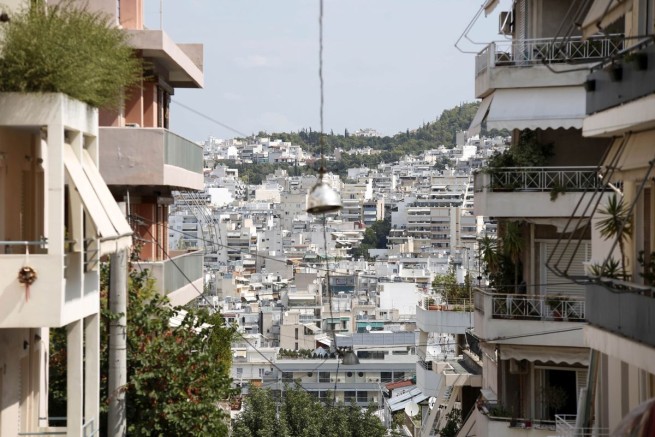In Greece, more than 900 thousand properties are unused and closed. Half of them were arrested due to debts.
The assessment came at a conference of the Athens-Attica Realtors Association, where industry representatives expressed doubts about the effectiveness of government housing measures. Cosmas Theodoridis, secretary general of the association and president of the European Union of Realtors, said that about 500,000 properties are either awaiting inheritance (their heir is unknown, has not been found, or has not accepted the inheritance) or are the result of partial refusal of inheritance.
Besides 400 thousand real estate properties have been seized by banks due to debts. In addition, every year from 60,000 to 120,000 houses become uninhabitable due to their disrepair, which amounts to approximately 1% to 2% of the country's building stock.
As noted, a significant portion of housing properties have “unknown heirs” (or those who refuse to enter into inheritance rights) and are located in the province (villages and hamlets). According to the Secretary General of the Association of Realtors, this phenomenon is directly related to the desolation of the Greek countryside and is exacerbating the housing problem, since there is an excessive concentration of population in the two major urban centers.
Another problem, according to broker representatives, is that until today The Greek state has never carried out an accurate accounting of the property it owns, which hinders its optimal use and management. For example, brokers report that there is no body that would deal with the inheritance of Citizens and would be responsible for the sale or rental of inherited objects (which would significantly “free their hands” for citizens, who often do not understand what to do with the “happiness” that has fallen on their heads).
Many thousands of closed properties are the result of foreclosure or remain unused due to legal disputes that can last for years due to legal delays, the president of the association of Realtors added. He expressed concern that the new program “My Home 2” (as happened with “My Home 1”) may create distortions due to a sharp increase in demand for the purchase of housingunless there is a corresponding expansion of the housing stock.
He fears that this will lead to another price increaseeliminating the benefits of beneficiaries from receiving a preferential loan. In other words, even “economical loans” will not save young and not so young citizens (persons under 50 years of age) who managed to join the “My Home 2” program. because they will have to pay an even higher price for real estate compared to today.
Average property prices in major urban centers such as Athens and Thessaloniki have already reached high levels. According to the latest data from Spitogatos for the third quarter of 2024, prices in Athens start from 1,900 euros per square meter (western suburbs) and soar to more than 3,800 euros per square meter (southern suburbs). The highest annual growth was recorded in Piraeus (more than 27%) and in the eastern suburbs (11.4%).
A similar situation is observed in Thessaloniki, where the annual growth ranges from 9.5% to 13.5%, and the average price of real estate in the areas of Thessaloniki is 2,400 euros per square meter (an increase of 10.9%).
On the contrary, Yiannis Revitis, honorary president of the Association of Realtors, claims that the average selling price of a second-hand house in the region is 600–700 euros per square meter. He claims that The housing crisis is a problem of urbanization, that is, the concentration of 50% of the country's population in Attica, which limits the percentage of empty houses in relation to demand, which also inflates prices. As a solution, he proposed increasing incomes and creating jobs in villages and villages.
The President of the Panhellenic Federation of Real Estate Owners expressed concern about the current negative situation in the rental housing sector. The housing crisis has caused distrust among landlords, who fear that tenants who move in may not pay, but evicting them would be a “big headache.”
He also noted that one of the reasons for the increase in empty space is obsolescence of housing stock. Approximately every second home was built in the 1960s and 70s, and since renovation requires significant financial investment, many of these properties are taken out of circulation and simply sit closed for decades.






More Stories
Elliniko: tram or metro
Uber: significant growth in international travel in Greece
Every third farm in Greece went bankrupt – Greenpeace apocalyptic study